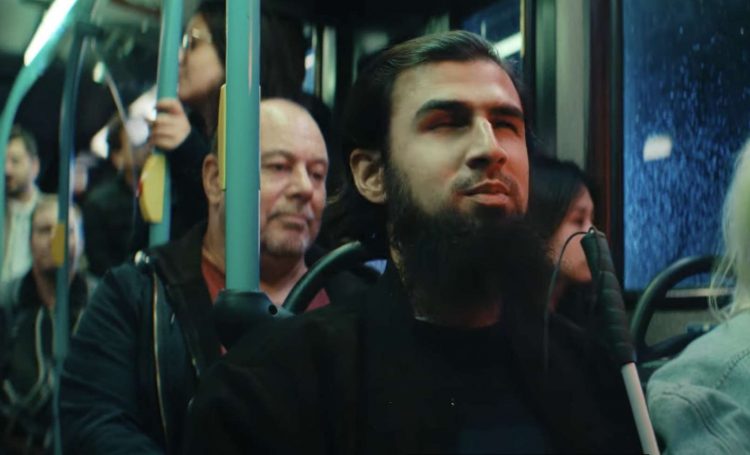Mahomed Khatri from Leicester is one of the main actors in a new series of short films which aim to raise awareness of and dispel misconceptions about sight loss.
Mahomed, who is blind, appears in the Bus film which highlights blind and partially sighted people can, and do, travel independently.

Leading sight loss charity the Royal National Institute of Blind People (RNIB) has released the light-hearted short films as part of its ‘See the Person, Not the Sight Loss’ campaign.
The #BeforeYouAsk films use everyday relatable experiences; in the workplace, romantic relationships, applying make up, watching football, travelling on the night bus and unavoidable school message groups, to banish myths around what it’s really like to live with sight loss
The main actors in each of the six short films all have sight loss and were keen to use their own experiences to inform their performances.
Mahomed said: “I lost my sight aged 16, so it means a lot to me to support other people when they’re losing their sight and increase understanding of what living with sight loss is really like. There are so many misconceptions in society around what we can and can’t do, and it can really impact on blind and partially sighted people’s confidence.
“People often make assumptions; they think I have super-hearing or ask questions about very basic tasks like how do I get dressed? How do I run? I wish people would ask if I need help, rather than just try and drag me across the road.”
Alongside the short films, RNIB has developed an interactive video chat where users can navigate around up to 40 questions to hear the answers delivered personally by blind and partially sighted people. The questions were gathered directly from people with sight loss who shared what questions they are frequently asked.
Vivienne Francis, RNIB’s Chief Social Change Officer, said: “RNIB’s Before You Ask films use humour and familiar scenarios to make people think. They also underscore a serious point about the misconceptions people face and the barriers these lead to in terms of people living independently.
“The films challenge these misconceptions head on, showing that of course blind and partially sighted people go to work, watch football, use public transport, seek romance and navigate the tricky world of school message groups – just like sighted people do.
“These scenarios were chosen for a reason; each relates closely to the issues that blind and partially sighted people have identified as the key areas that need to change, from removing barriers to getting around easily, to levelling employment opportunities.
“We hope this campaign will go a long way to stopping both the misguided everyday questions blind and partially sighted people face but also the more deep-rooted misconceptions about the expectations, needs and wants of people with sight loss, which we know are leading to gaps in experiences compared to sighted people; these gaps need to close.”
To see Mahomed’s video, visit: https://www.youtube.com/watch?v=xEe9c6VyZfA&ab_channel=RNIB



